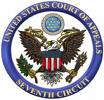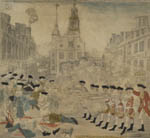Seventh Circuit Criminal Case of the Week: Protracted Prosecution, Contrition, and Age as Sentencing Factors
 The Seventh Circuit had some interesting commentary on a number of different sentencing factors in United States v. Presbitero (Nos. 07-1129, 07-1610, & 07-1712). Writing for the court, Judge Williams affirmed Presbitero’s conviction of tax offenses, reinstated a codefendant’s conviction, and remanded for resentencing in order to determine whether Presbitero qualified for a leadership enhancement under the sentencing guidelines. Judge Williams concluded by addressing the government’s arguments that the district court took impermissible factors into account when it sentenced Presbitero to a below-guidelines sentence.
The Seventh Circuit had some interesting commentary on a number of different sentencing factors in United States v. Presbitero (Nos. 07-1129, 07-1610, & 07-1712). Writing for the court, Judge Williams affirmed Presbitero’s conviction of tax offenses, reinstated a codefendant’s conviction, and remanded for resentencing in order to determine whether Presbitero qualified for a leadership enhancement under the sentencing guidelines. Judge Williams concluded by addressing the government’s arguments that the district court took impermissible factors into account when it sentenced Presbitero to a below-guidelines sentence.
First, the Seventh Circuit agreed with the government that the expense and stress of protracted litigation could not be considered as a mitigating factor for Presbitero. Since Presbitero spent almost ten years (!) defending charges brought by the government, it is hard to see how anyone could qualify for a sentence reduction based on the burdens of protracted litigation if he does not. The court cited concerns about encouraging defendants to overspend on expensive lawyers as a reason not to treat litigation costs as a mitigating factor. There would also be equitable concerns in giving a sentence benefit to defendants who are able to spend a lot of money on private lawyers. Still, I wonder if the court has given too little regard to the nonfinancial toll of litigation. In some cases, as Malcolm Feeley famously observed in a book of the same title, “the process is the punishment.” Although lawyers may make neat distinctions in their heads between the process by which guilt is determined and the punishment imposed afterwards, many defendants surely experience the process as deeply traumatic and stigmatizing in its own right. In extreme cases, it may not be inappropriate to reduce the length of the formal sentence in recognition of the fact that the defendant has already suffered a great deal prior to the imposition of the sentence.
Second, the Seventh Circuit rejected the government’s contention that Presbitero’s “obstinate behavior” should have been considered an aggravating factor.

 Irene’s post
Irene’s post